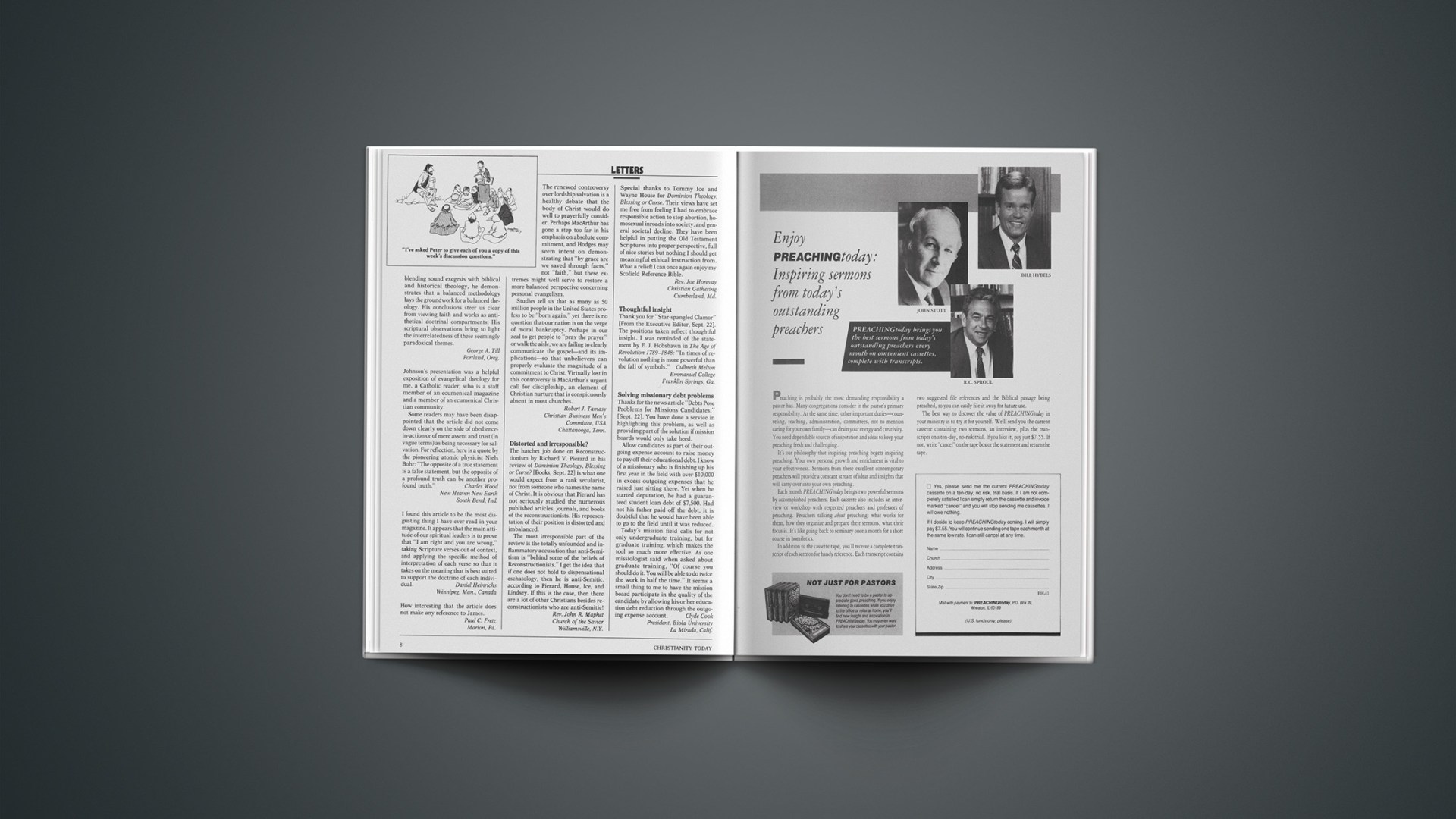As a New Testament scholar I often hear statements such as these: “One has to be pretty naive to accept at face value what the New Testament writers say about their motives”; or “New Testament documents tell us more about the authors who wrote them than they do about the events they purport to relate”; or “No one can claim to be a scholar who accepts the New Testament’s account of the Resurrection”; or “I don’t mind singing the Apostles’ Creed, but I hesitate to say it.”
What all these supposed maxims have in common is their skepticism regarding the truth value of the New Testament’s presentations, as well as of all later statements that take seriously the truth of those presentations. Scholarship is not averse to descriptive analyses of what the New Testament writers believed and taught, or of how the early Christians acted out those beliefs. That is, in fact, what biblical scholarship today is all about. The truth value of what is studied, however, is another question.
Skepticism regarding the truth value of what appears in the New Testament is far more prevalent than we evangelicals like to admit. And it seems to be growing. This skepticism today seems to have at least two sources. On the popular front, the shenanigans and outright sins of some TV preachers cast a veil of suspicion over all religious statements. Deceit and duplicity, of course, have also been uncovered in politics, business, and sports. But the public rightly judges those more harshly who hide their sinful activities under a cloak of religiosity.
On the academic front, human experience and reason still reign supreme as the arbiters of truth. “Openness to transcendence” is a stance rarely taken, and any idea of the divine inspiration of the apostolic witness (except in its most mundane sense) is strenuously rejected. God, sin, redemption, and faith are alien words in today’s language. For most scholars, the New Testament’s portrayals and teachings are only of antiquarian interest.
What distinguishes evangelicals from this culturewide skepticism is a desire to adhere to the apostles’ faith and doctrine, allowing their convictions, motivations, and lifestyle to serve as the touchstone for all of our thought and life. Admittedly, determining what they believed and did is not always easy. Certainly we need to distinguish between the cultural and the transcultural; between what is described and what is taught; between poetry and prose; between polemic and exposition; between ancient historiography and exegetical practices and our own.
Likewise, we need to recognize that everything the New Testament writers wrote was written “out of faith and for faith.” As well, it is read by us with our own particular preconditionings.
Yet difficult as it may be at times to delineate clearly the nature of apostolic faith and practice, the evangelical Christian feels compelled to conform to and build upon that witness for his or her own life.
F. J. A. Hort long ago said in The Epistle of St. James, “Our faith rests first on the Gospel itself, the revelation of God and his redemption in his only begotten son, and secondly on the interpretation of that primary Gospel by the Apostles and Apostolic men to whom was divinely committed the task of applying the revelation of Christ to the thoughts and deeds of their own time. That standard interpretation of theirs was ordained to be for the guidance of the Church in all after ages, in combination with the living guidance of the Spirit.”
So for us, although the New Testament is always subject to proper canons of criticism, the apostolic voice is what makes it decisive for our own doctrine and practice. It is the apostolic portrayals of what happened and the apostolic teaching about the significance of what happened that are true—even the representation of an apostle’s motives.
It is not naïveté that fosters such a conviction, but a conscious stance that aligns itself with the apostolic witness and allows that interpretation to judge all our thoughts, actions, and motives.










